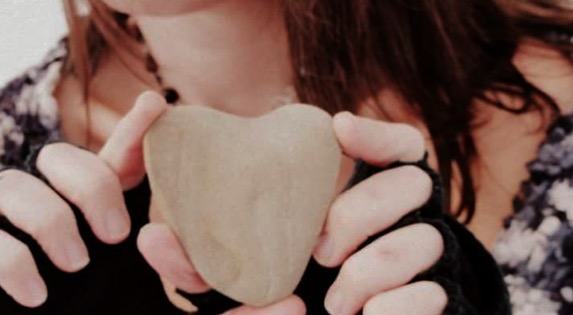
The first was in junior high–we wore matching outfits to a Valentine’s Day dance one week and he broke up with me the next. I was home sick with a flu and in my fevered, delirious state the heartbreak felt like ruin. No gift. No lesson. Just I feel something for you…no, wait, I don’t. The End.
Then there was a boy who called me beautiful and talked to me for hours on the phone each night, only to pass by me in our high school hallways like a ghost by day. Another whose popular girlfriend found out he was talking to me in biology class and decided to make me regret ever speaking a word. I was just as heartbroken over her as I was him–I wanted to be her friend, too. I failed. I learned a new kind of pain brokered by the power differential between certain types of girls.
Next came the real one. The first true love. The everything. We spent hours deliriously kissing and hours wildly fighting. Two kids mimicking the broken marriages of our parents and dealing with grown up issues we were ill-equipped to handle. As deep as the love was, I learned that love isn’t always enough–a lesson it took years to fully understand.
By the time I fell for the man I’d marry, there had been other splintering heartbreaks. A New England musician who wrote me love letters long after he left and another girl’s boyfriend who scarred me in a dozen different ways. In those days, I could feel love for the infinite potential of a fragile boy strung out on drugs or a poet I barely knew who 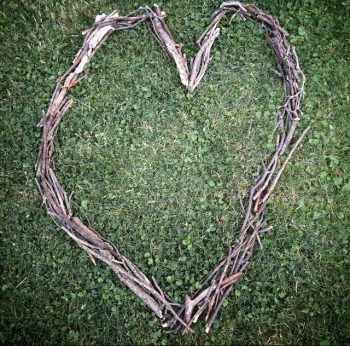 called my shoulders white as milk and swore he’d never kiss me or we’d both die from it.
called my shoulders white as milk and swore he’d never kiss me or we’d both die from it.
My heart then was a fool and I learned to let it break wide open to hold everyone and everything. Limitless. Boundless. Vicious.
But, when I married, I thought I had found out what love actually was. All that it could be. My fairytale ending. The babies, the house, the growing up together year after year, our late night philosophical ramblings and our barefoot slow dances to Harvest Moon across the warped kitchen floor, our fights and our forgiveness.
One day, as we stood together in our sundrenched kitchen, his wedding band snapped and fell off of his finger. “It’s a sign,” I said ominously. “It’s not,” he said, shaking his head. We both stared at the silver band, no longer a complete circle, no longer whole.
I was right. We separated a year later.
I was given a lesson then in a whole other level of pain no one ever could’ve warned me about. Heartbreak to end all heartbreaks. I won’t say that my divorce made my heart wise. I can’t say that. If anything, it made my heart even more completely lost. If “forever” didn’t exist anyway, my heart decided to pin itself to reckless stories that would only cause more damage–the only thing I understood. A heart, once set to broken, draws in other fractured hearts with a magnetic pull.
I went out with a man who belonged to someone else, a teacher who took me to a prom but couldn’t kiss, a Buddhist I didn’t like but whose philosophies I did, a writer who didn’t want me to talk about my work, a chef who didn’t like my tattoos and asked if I’d consider lasering them off before I met his family. There was one I believed might become my next something, but my brokenheart perspective had a nasty habit of shifting into kaleidoscopic view, seeing only the smooth parts I liked, while shifting the glass to obscure the jagged-edged ones I did not. I spent so much time pressing my eye to the shattered fragments that I overlooked the blood spilling from me. I believed that wounding was all I deserved after all that had happened.
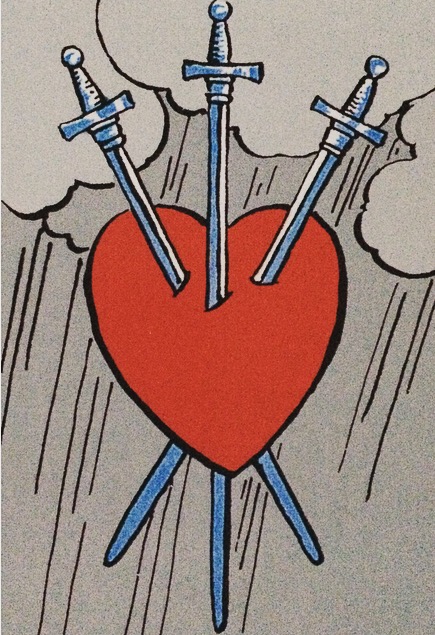 I was still a damn fool.
I was still a damn fool.
Then, my mom died of what was ultimately a broken, faulty heart and I realized that my greatest source of love had never been the dates or the crushes or even the real relationships–it had been her all along–and she was gone.
There was no choice but for me to channel all of the love I had left into myself.
I bought myself a silver ring at the same shop where I bought my ex-husband’s years before. I went to the beach and vowed to stay alive and to stay open to love in all its forms. I vowed to make better choices to stop my constant heartbreak. I wrote my vows in the sand and let the waves carry them off. I slid the ring onto my finger and the wisdom of all I’d been through surged in my blood like high tide.
My marriage to self-love was in March, and that June I did meet another someone. He had a faulty, broken heart not unlike my mother’s.
When I eventually let him close to me, I could hear the mechanical ticking of his clockwork heart, keeping time. He’s had many surgeries in his life and and I’ve had many wounds. Our hearts both know something of suffering.
But, I have been wise enough to start to let my past go and to count each moment with him.
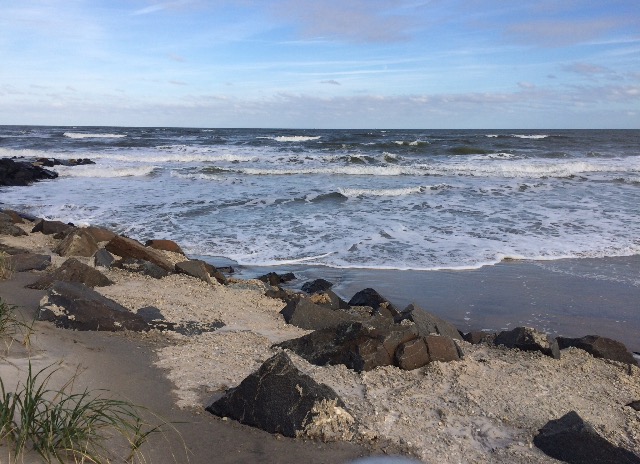
I don’t know what the future holds and, yes, he may yet be another hard lesson learned someday, but over the past three years, I have been learning my way around love, not loss. I have been learning to receive, to be heard, to be seen as beautiful and worthy of respect and tenderness.
My heart has been burned and my heart has been broken, but it was the wisdom I earned through self love that led me to a place where I am even able to have this kind of partnership now. This isn’t a fairytale where a hero rides in and saves our lady from her sorrow–it is one where she rescues herself and loves herself first.
The bravehearted partner is definitely a bonus, but the real love story…now and ever after…is the one within.
Cathleen Delia Mulrooney
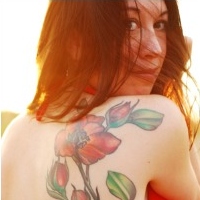 Restless. Sleepless. Book-lover. Wordsmith. Deep roots. Prodigal heart. Teacher. Guide. Wanderer. Witch. Tea, tarot, hot baths, stitchcraft. Curator of narrative relics, remnants, & curiosities.
Restless. Sleepless. Book-lover. Wordsmith. Deep roots. Prodigal heart. Teacher. Guide. Wanderer. Witch. Tea, tarot, hot baths, stitchcraft. Curator of narrative relics, remnants, & curiosities.
Cat is also a freelance writer, editor, and teacher. Her poetry, fiction, essays, interviews, and reviews have appeared in a variety of online and print publications. She has been teaching writing at the college level since 2000, and has facilitated creative writing workshops in elementary schools, high schools, prisons, and private organizations, as well as workshops exclusively for women to write their body and tarot-based narratives.
Through her Queen of Cups Tarot community, she offers private, group, and online tarot readings. Find her online at http://cdeliamulrooney.com and Facebook: https://www.facebook.com/queenofcupstarot/

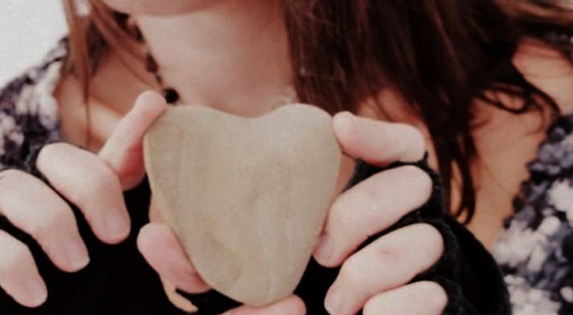
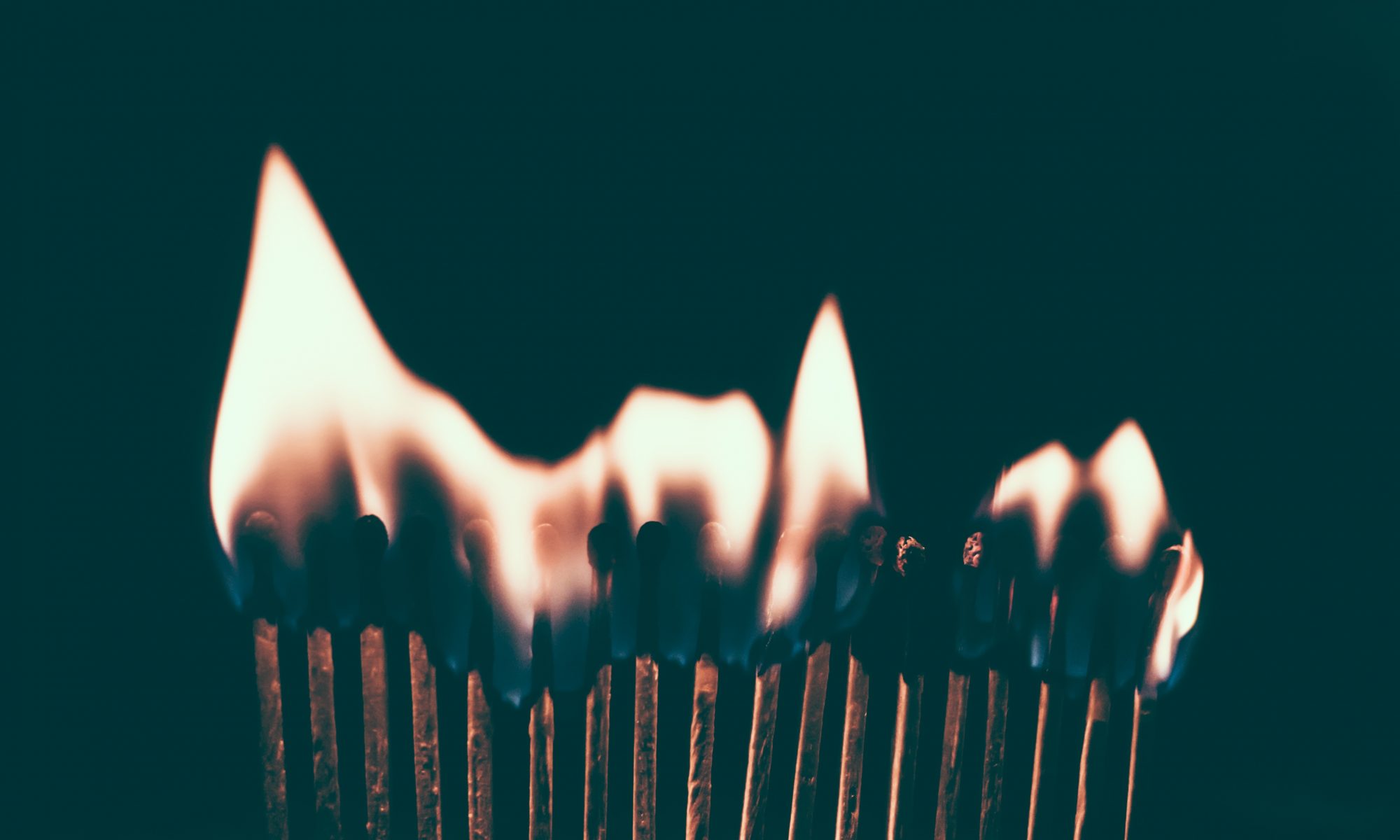
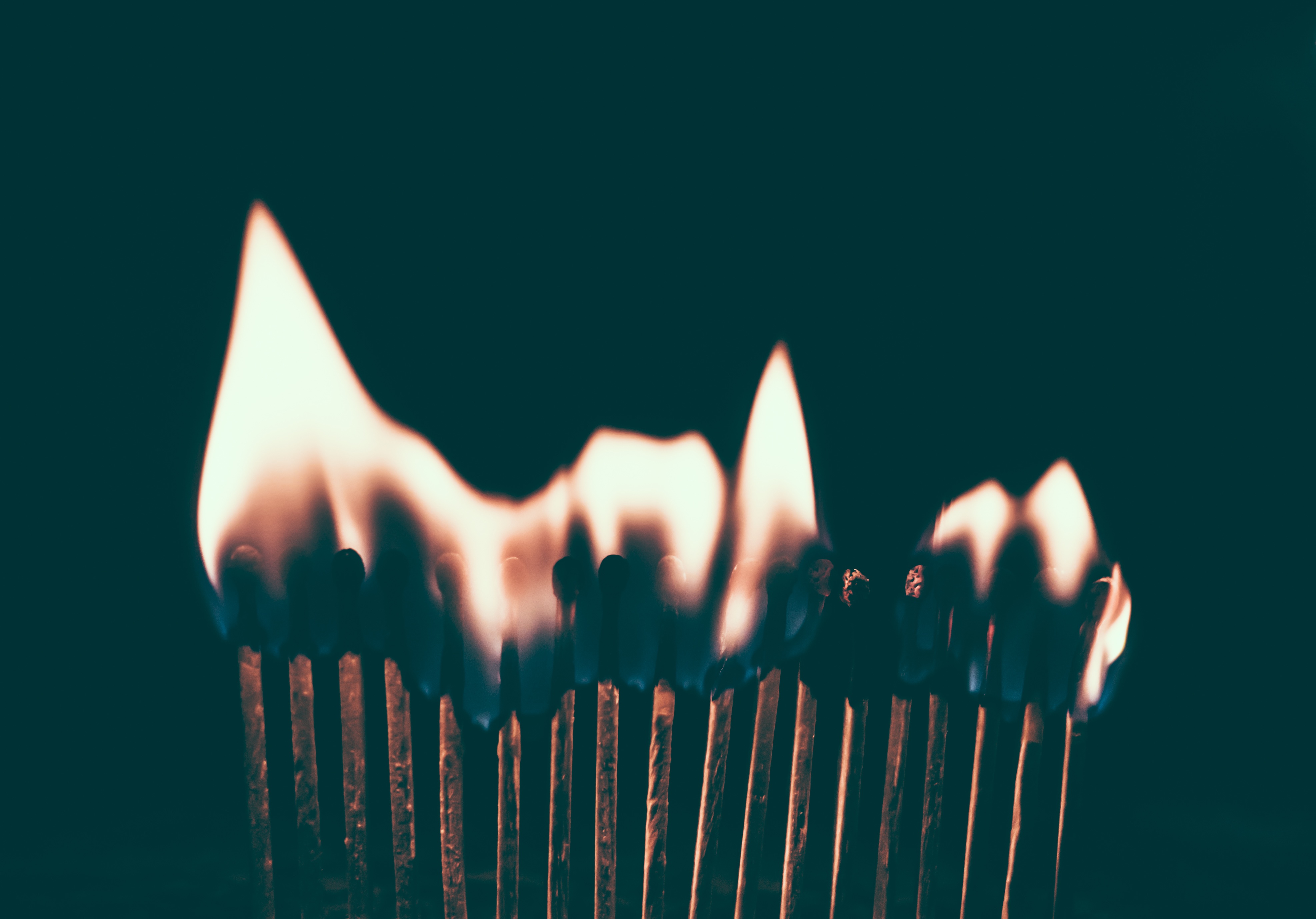
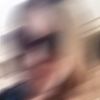
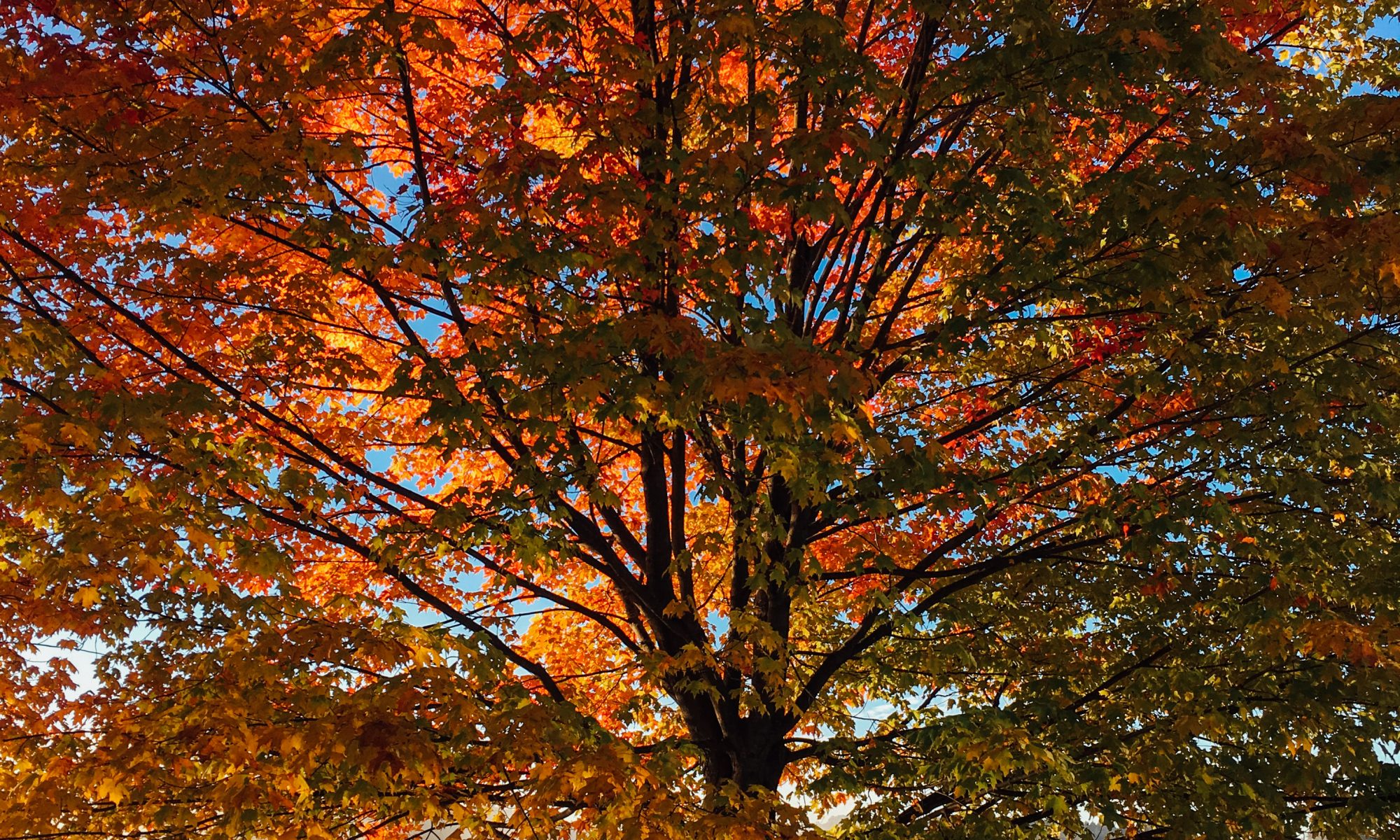
 You think you’re going to surprise me – you with your damp, misty mornings and slightly chilled evening breezes. You think I haven’t noticed those red-tipped leaves at the top of the maple tree, or those golden elm feathers that drift down occasionally along the path to the mailbox. You’re sure I’m completely unaware that I need to turn on my reading lamp at seven o’clock each evening instead of eight or even nine.
You think you’re going to surprise me – you with your damp, misty mornings and slightly chilled evening breezes. You think I haven’t noticed those red-tipped leaves at the top of the maple tree, or those golden elm feathers that drift down occasionally along the path to the mailbox. You’re sure I’m completely unaware that I need to turn on my reading lamp at seven o’clock each evening instead of eight or even nine. d verdant turns yellow and withers away
d verdant turns yellow and withers away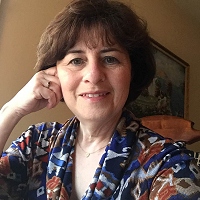 Becca Rowan lives in Northville, Michigan with her husband and their two dogs. She is the author of
Becca Rowan lives in Northville, Michigan with her husband and their two dogs. She is the author of 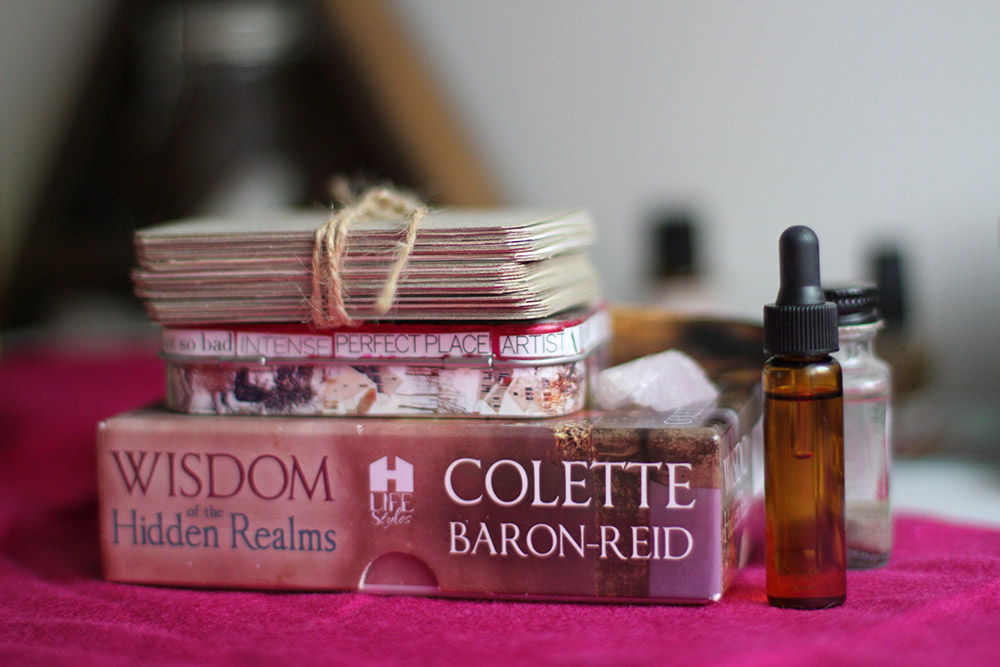
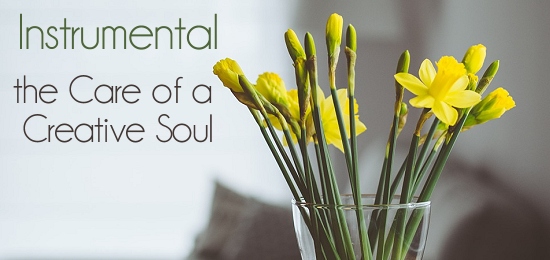
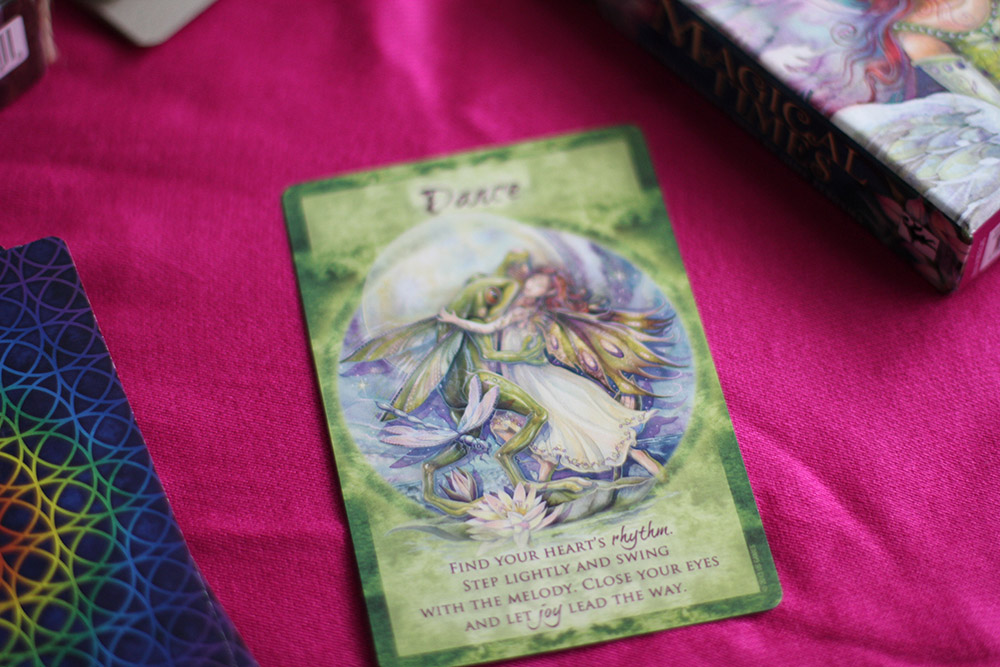
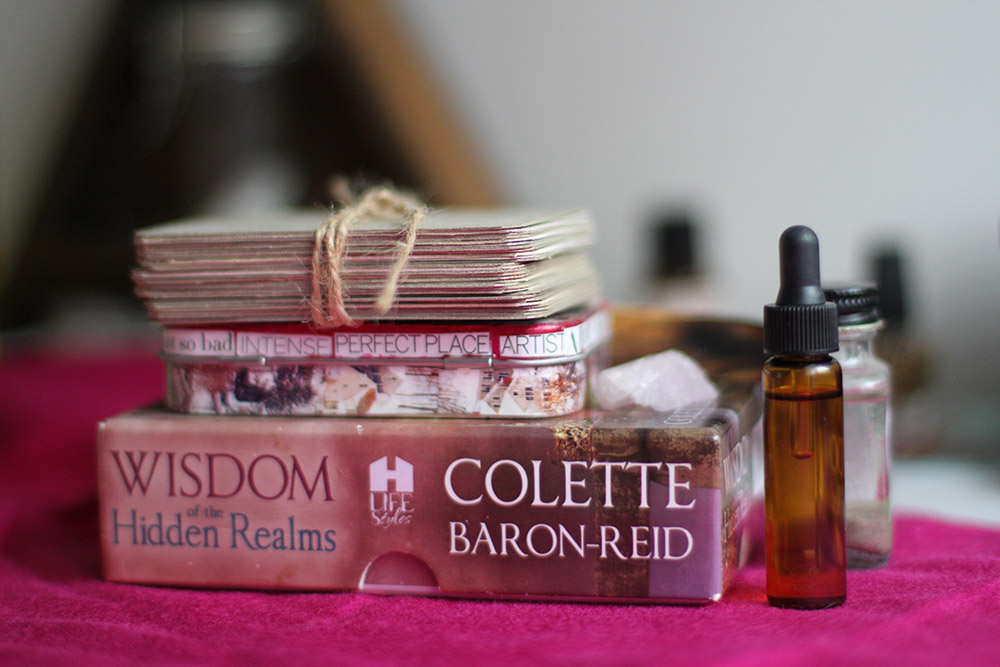
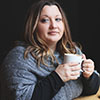 Bella Cirovic is a photographer and writer who lives with her husband and daughter in the suburbs outside of NYC. She writes on the subjects of self care, body love and nourishment, crystals, essential oils, and family life. Catch up with Bella at her blog:
Bella Cirovic is a photographer and writer who lives with her husband and daughter in the suburbs outside of NYC. She writes on the subjects of self care, body love and nourishment, crystals, essential oils, and family life. Catch up with Bella at her blog: 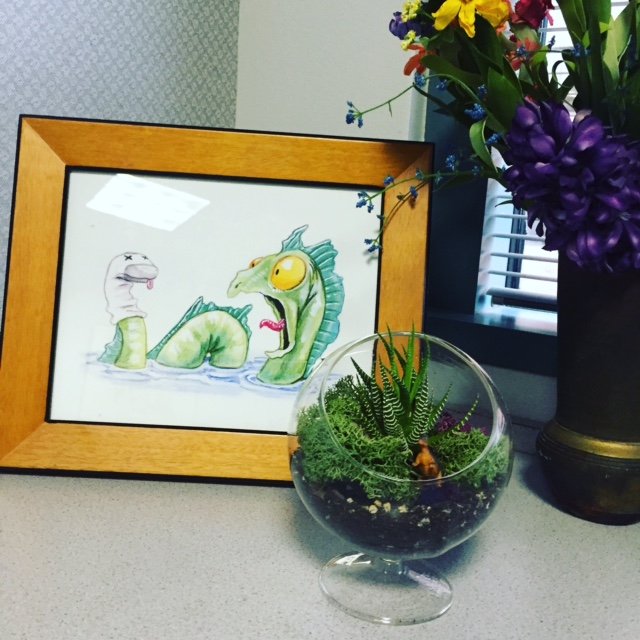

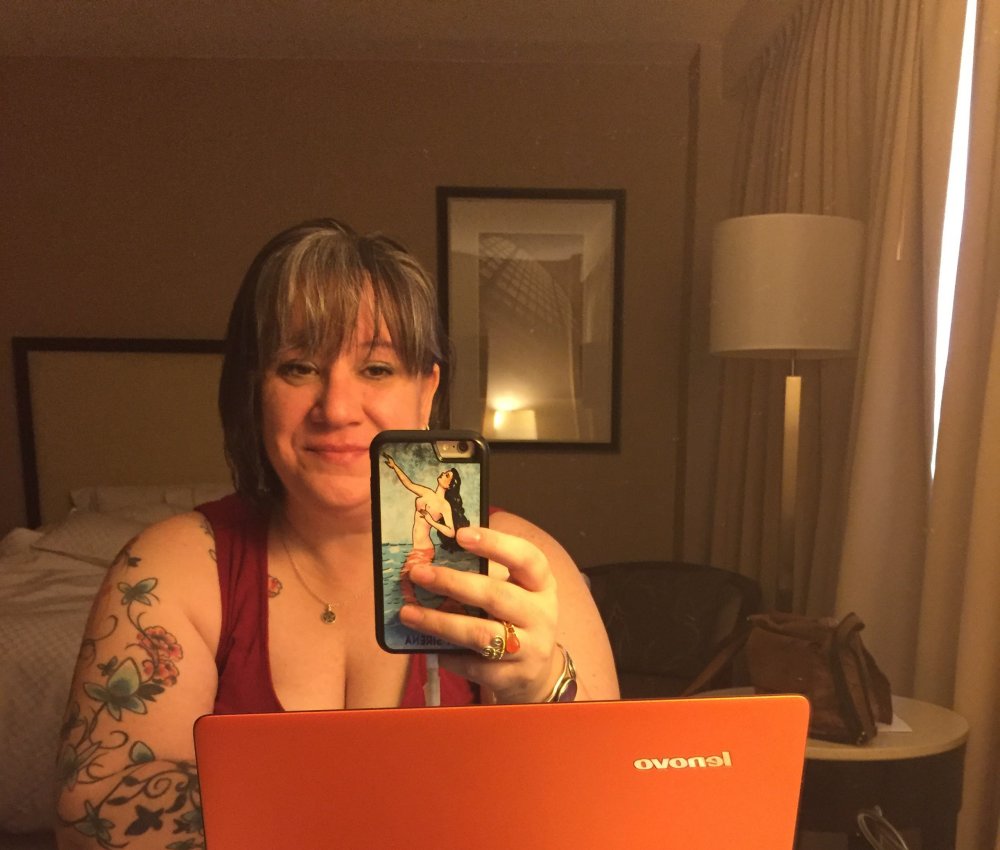
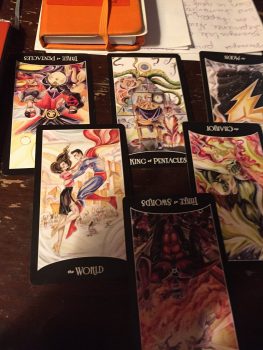 I choose my card of the day.
I choose my card of the day.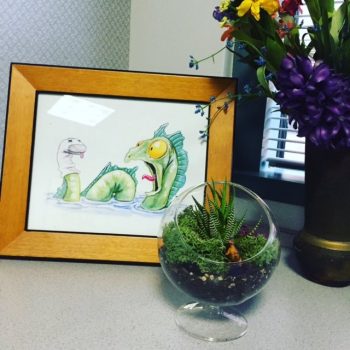
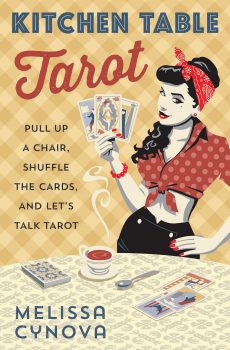 I remind myself that writing is a privilege, not a right, and that for me? I can’t not write. I can’t not read tarot cards.
I remind myself that writing is a privilege, not a right, and that for me? I can’t not write. I can’t not read tarot cards.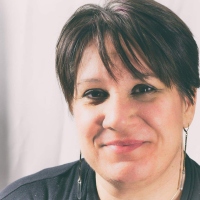


 I live in Raleigh, NC where I write, read, and watch birds. My stories have appeared in several magazines, most recently Modern Creative Life, Indiana Voice Journal, and Watching Backyard Birds.
I live in Raleigh, NC where I write, read, and watch birds. My stories have appeared in several magazines, most recently Modern Creative Life, Indiana Voice Journal, and Watching Backyard Birds.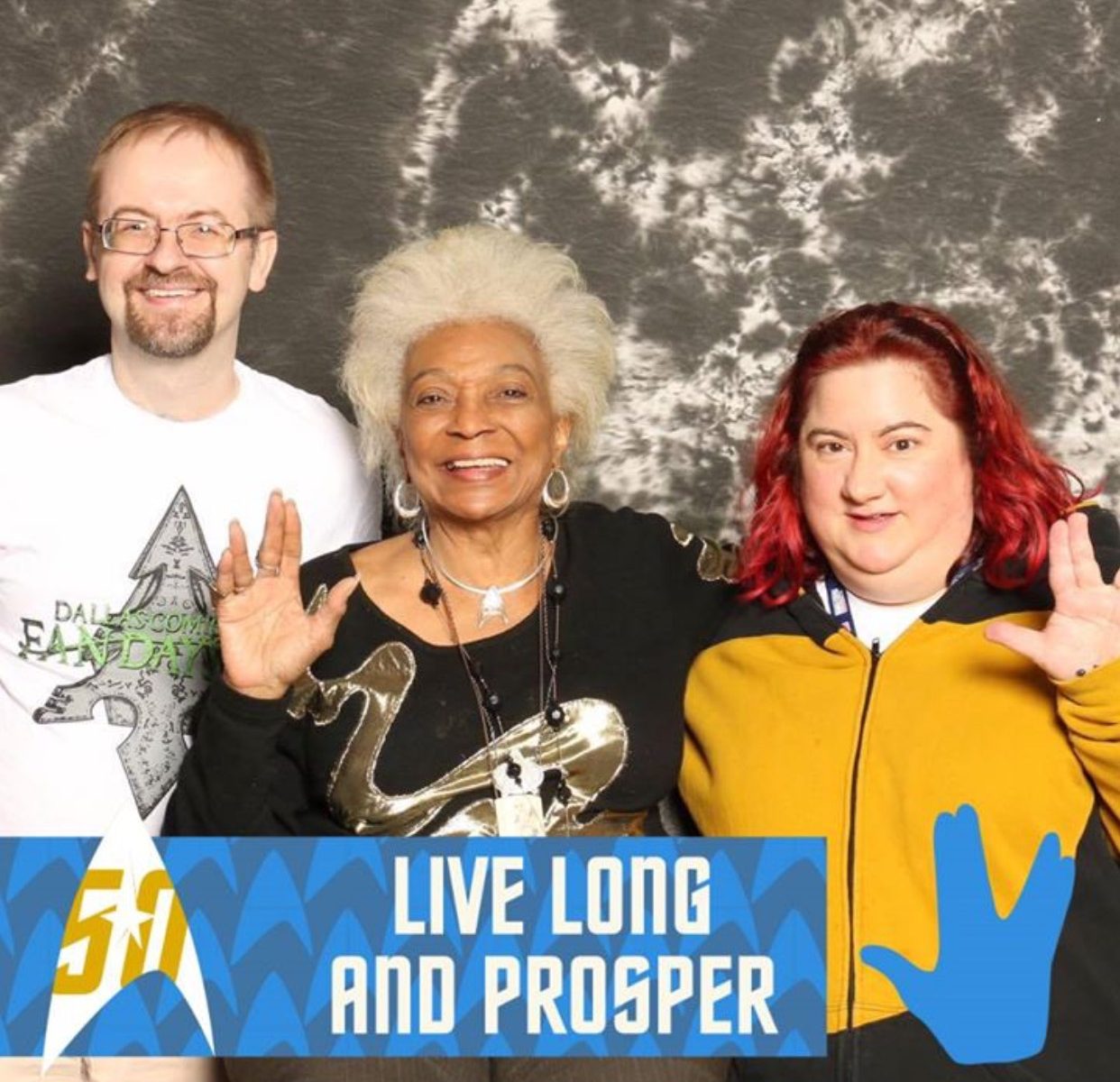

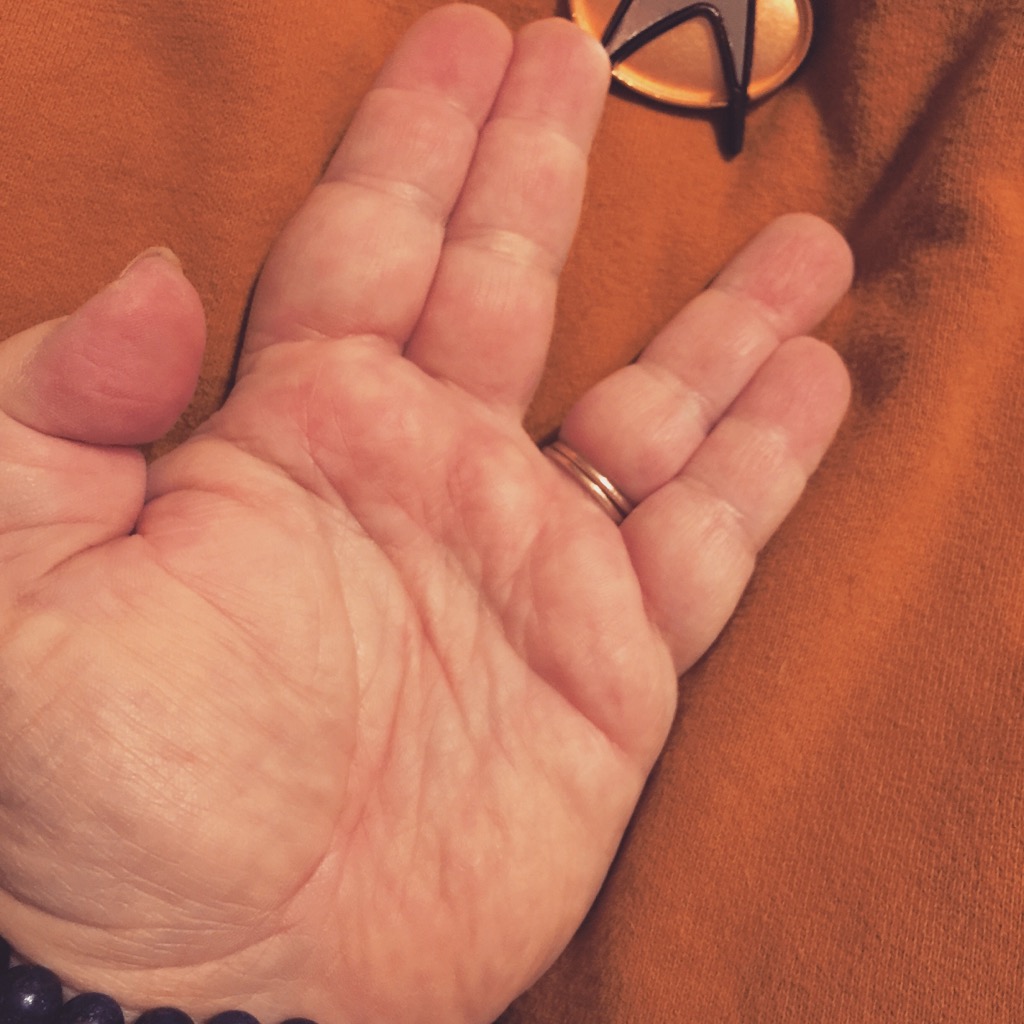
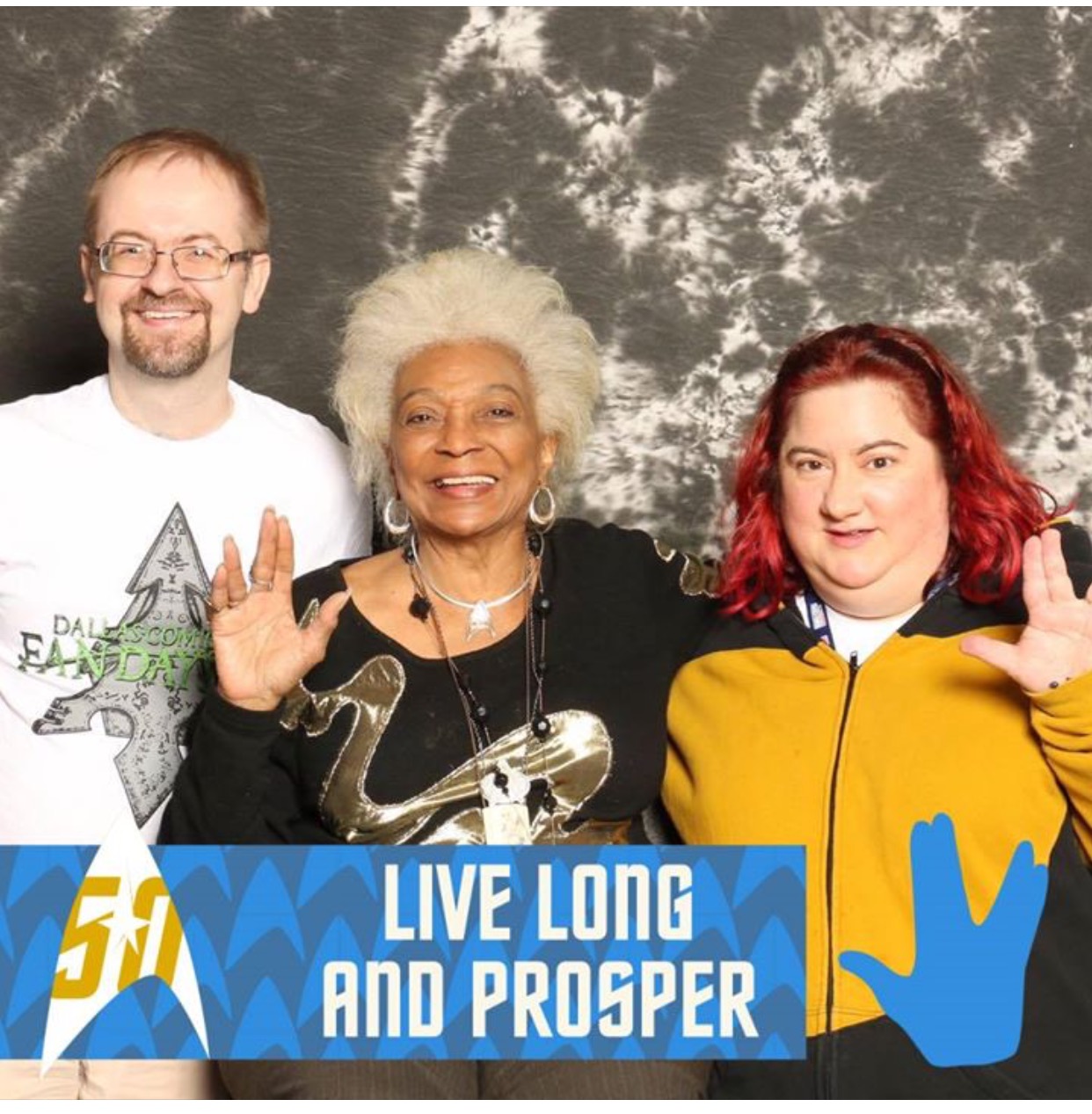
 Melissa is a writer, voice actor, podcaster, itinerant musician, voracious reader, and collector of hats and rescue dogs. She is the author of
Melissa is a writer, voice actor, podcaster, itinerant musician, voracious reader, and collector of hats and rescue dogs. She is the author of 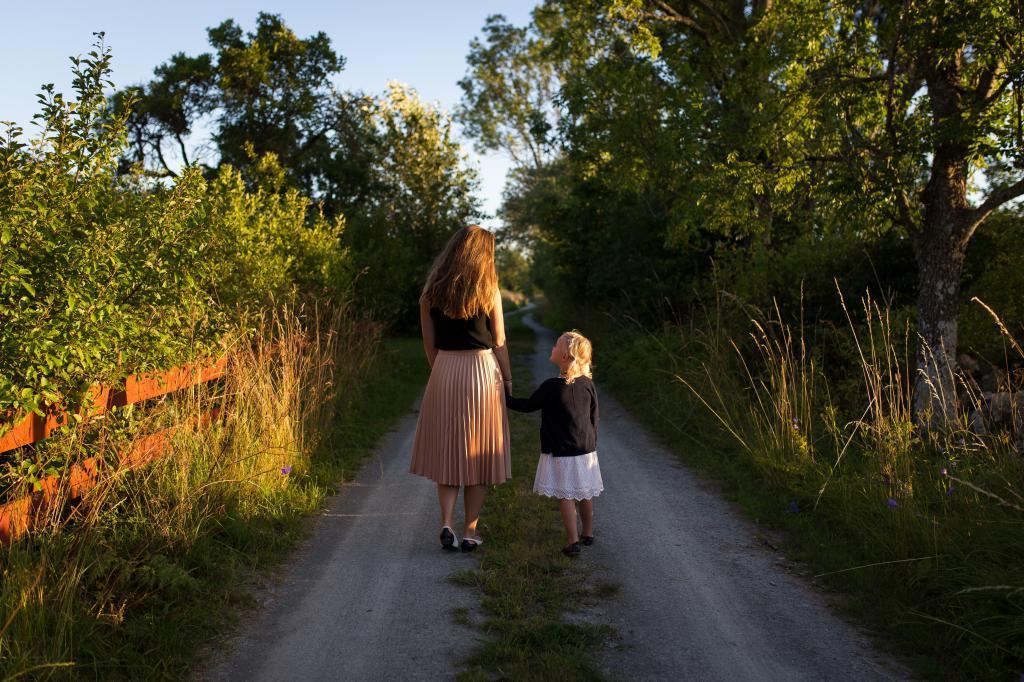
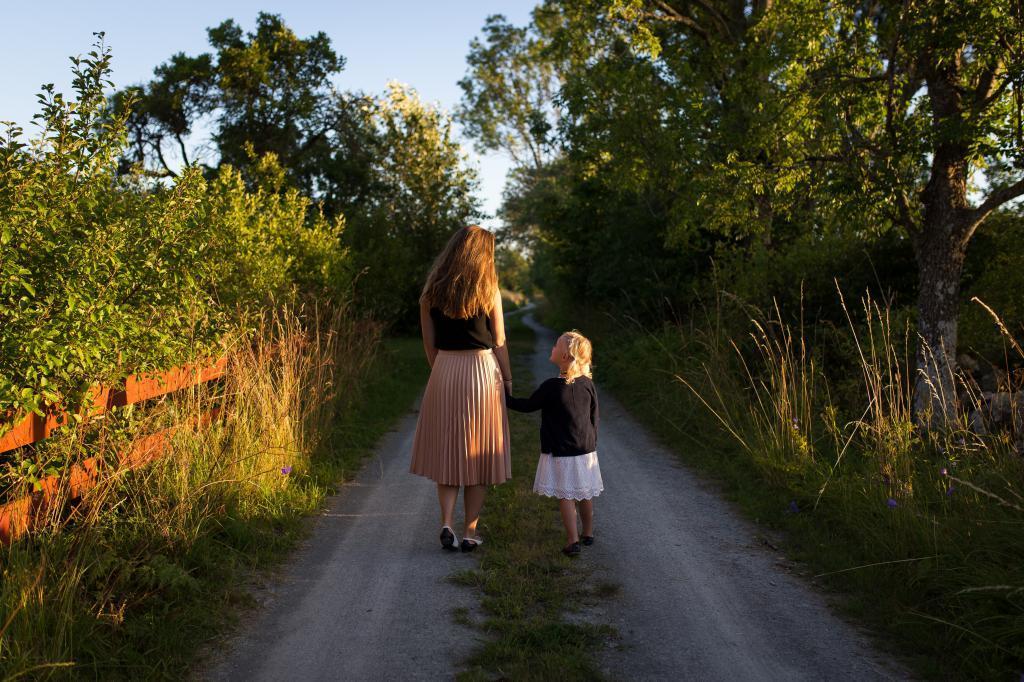
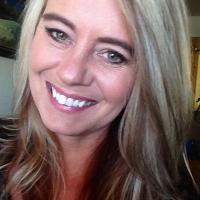 Lisa Zaran is the author of eight collections of poetry including Dear Bob Dylan, If It We, The Blondes Lay Content and the sometimes girl. She is the founder and editor of
Lisa Zaran is the author of eight collections of poetry including Dear Bob Dylan, If It We, The Blondes Lay Content and the sometimes girl. She is the founder and editor of 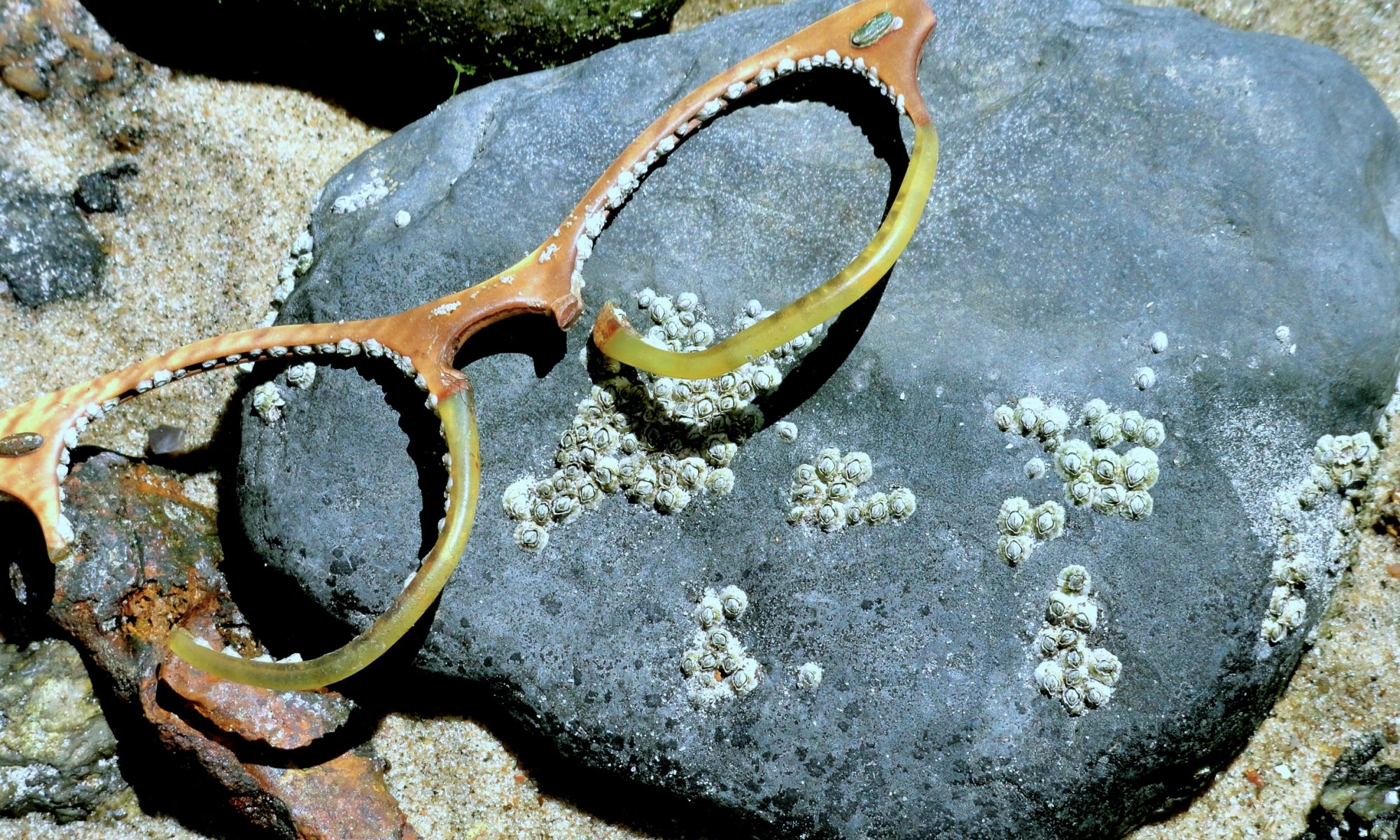

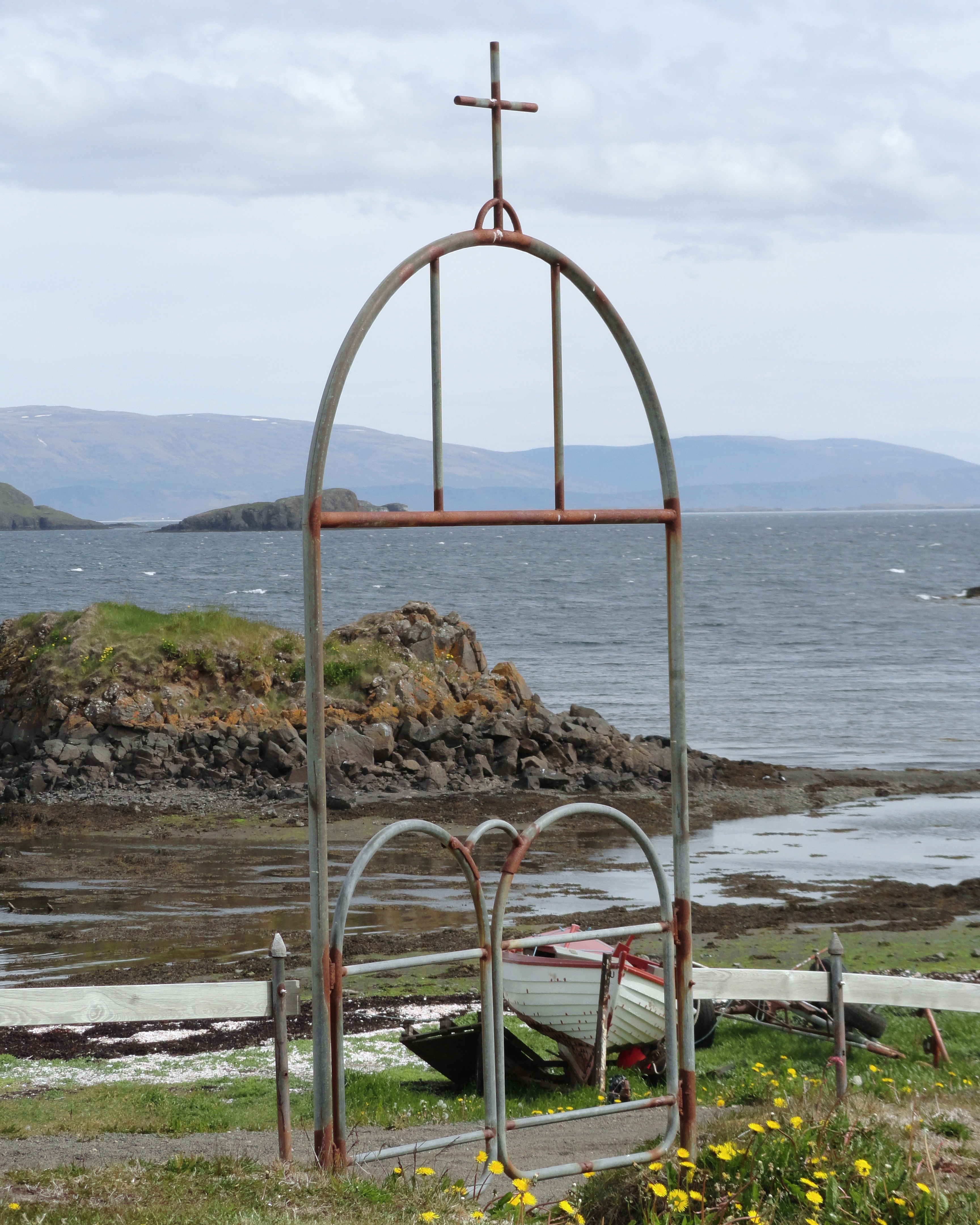

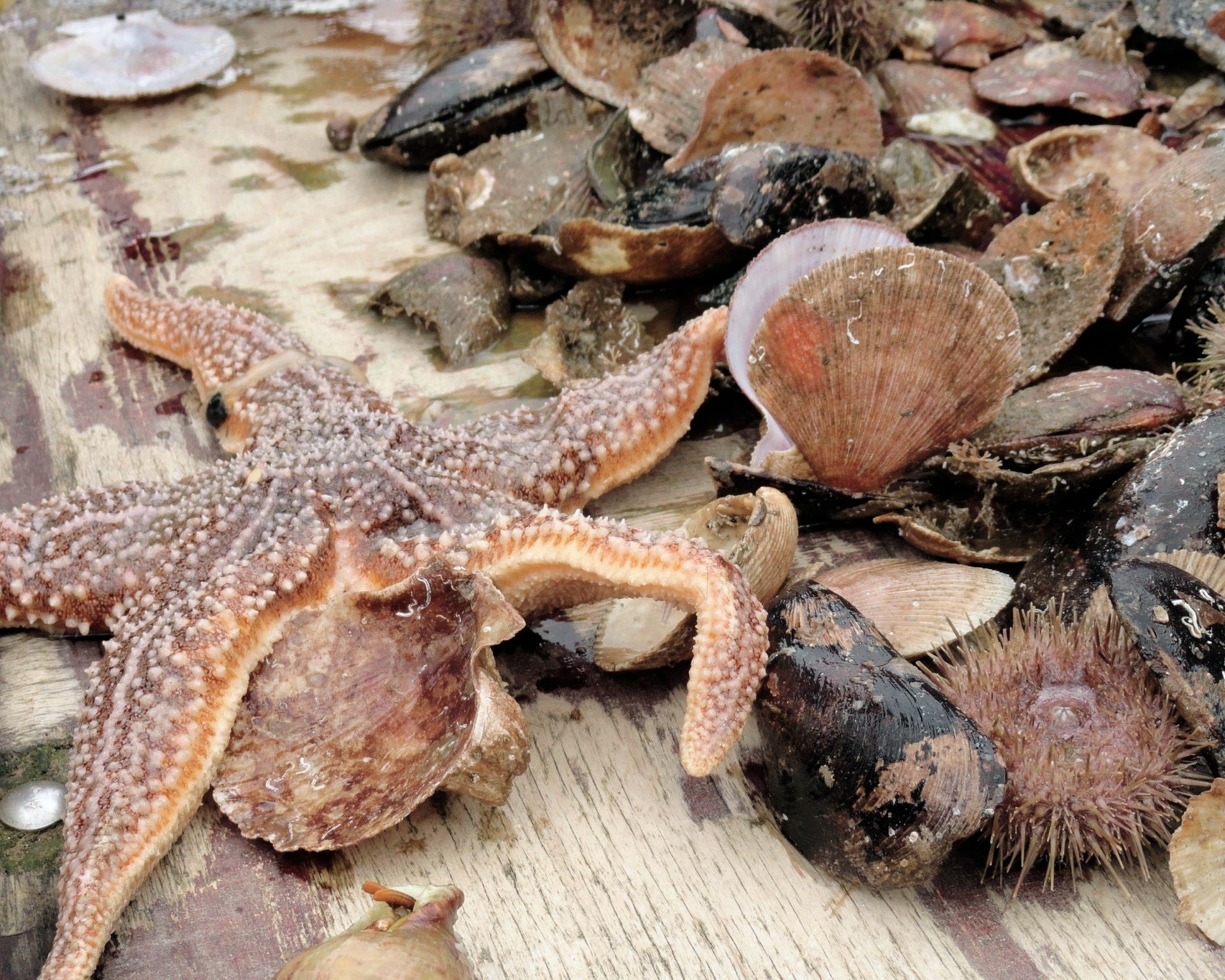



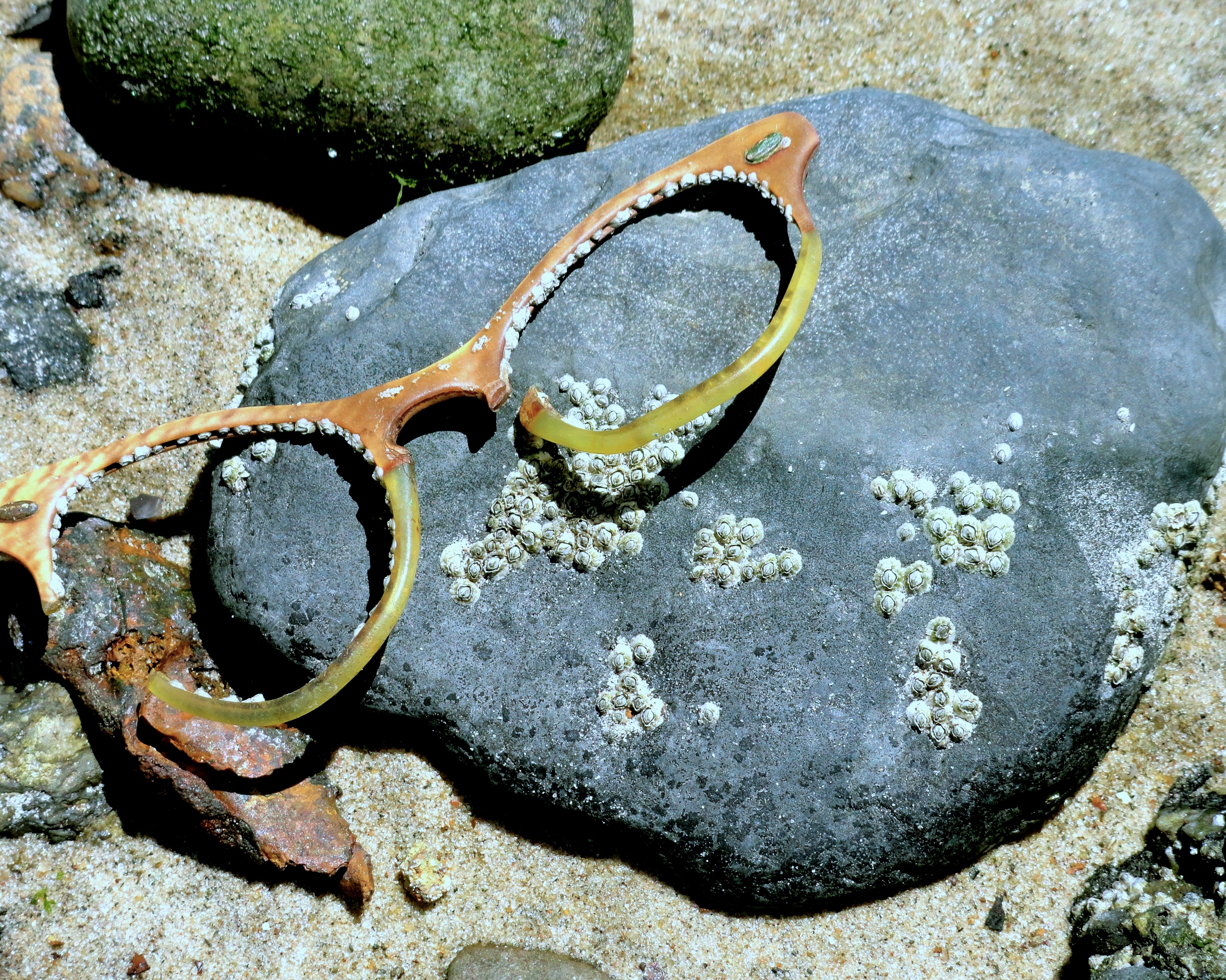
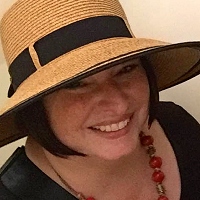
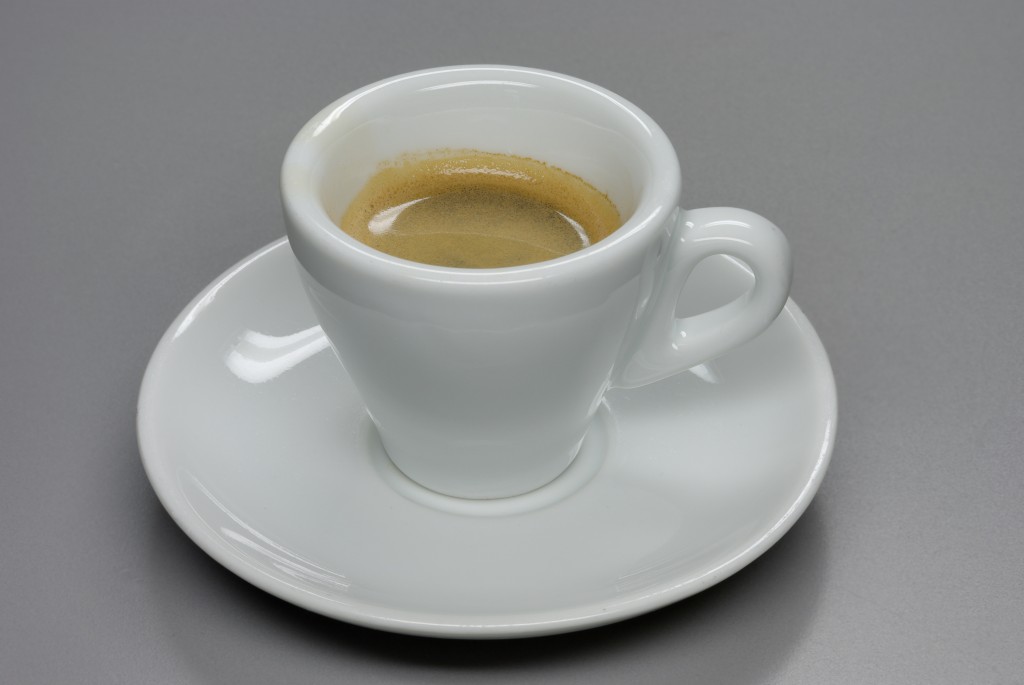

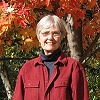 Patricia Wellingham-Jones is a widely published former psychology researcher and writer/editor. She has a special interest in healing writing, with poems recently in The Widow’s Handbook (Kent State University Press). Chapbooks include Don’t Turn Away: poems about breast cancer, End-Cycle: poems about caregiving, Apple Blossoms at Eye Level, Voices on the Land and Hormone Stew.
Patricia Wellingham-Jones is a widely published former psychology researcher and writer/editor. She has a special interest in healing writing, with poems recently in The Widow’s Handbook (Kent State University Press). Chapbooks include Don’t Turn Away: poems about breast cancer, End-Cycle: poems about caregiving, Apple Blossoms at Eye Level, Voices on the Land and Hormone Stew.